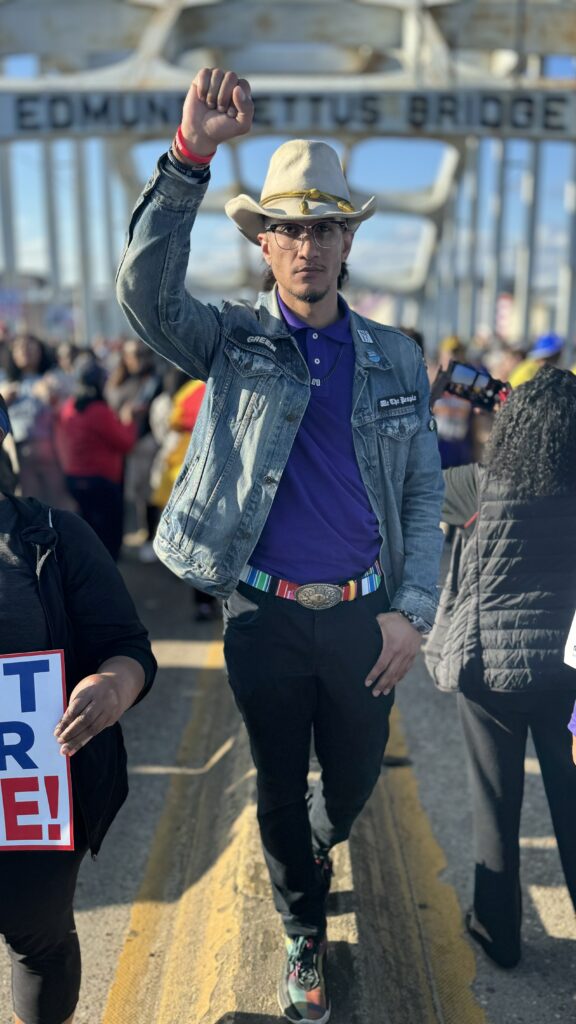August 12, 2024 | Pensacola, Florida
In a case that could change the conversation on civil rights in America, Pensacola resident Jonathan Garrett Green is suing some of the most powerful figures in the country—President Joseph R. Biden Jr., Florida Governor Ron DeSantis, South Carolina Governor Henry McMaster, and Pensacola Mayor D.C. Reeves (Darcy Reeves). This lawsuit, filed in the U.S. District Court for the Northern District of Florida, delves deep into issues of systemic racism, historical injustices, and ongoing government accountability.
A Legacy of Injustice
Green’s lawsuit isn’t just about personal grievances; it’s a fight against the systemic racism that has persisted across generations. His connection to this battle is personal—his third great-grandfather, Aesop Goodson, was one of the first Black state legislators during the Reconstruction era. Green argues that the racial discrimination that led to his ancestor’s removal from office in the 1870s continues to impact his life today.
According to Green, the U.S. government, along with state and local officials, has not only failed to correct these historical wrongs but has perpetuated them through continued discriminatory practices. He draws a line from the injustices his ancestor faced to the challenges he and others like him are experiencing now.
The Legal Battle
Green’s case is grounded in several federal statutes that allow individuals to sue government officials for civil rights violations. He isn’t just targeting past wrongs; he’s challenging ongoing failures at all levels of government. His lawsuit accuses the defendants of violating the First, Fourteenth, and Fifteenth Amendments—rights that should be protected, but which Green argues have been trampled by systemic failures.
One of the most compelling aspects of Green’s lawsuit is his claim that the government’s failure to enforce crucial Supreme Court decisions like Brown v. Board of Education has allowed segregation and discrimination to continue unchecked. He believes this inaction has fostered a climate of fear and oppression, deterring people from seeking justice.
Overcoming Legal Hurdles
Sovereign immunity—the principle that government officials are often protected from lawsuits—could be a major obstacle in this case. However, Green’s lawsuit aims to challenge this protection by demonstrating how the defendants’ actions have caused direct harm and violated both domestic laws and international human rights norms.
Green’s complaint also differentiates itself from past cases, such as the In re African-American Slave Descendants Litigation, by establishing a clear connection between the actions of the defendants and the specific injuries he has suffered.
Seeking Justice
Green isn’t just seeking a declaration that his rights have been violated—he’s demanding systemic change. He wants the court to order the government to stop these alleged violations and to compensate him for the emotional and financial damages he has endured.
This lawsuit is more than a personal battle; it’s a call for a broader reckoning with the past and a push for reforms that could protect the rights of marginalized communities going forward.
Why This Matters
If Green’s case proceeds, it could have a significant impact on civil rights law and government accountability in the U.S. By holding high-level officials to account, this lawsuit could set a new precedent in how the legal system addresses historical injustices and ongoing civil rights violations.
As this case unfolds, it’s likely to draw attention from civil rights advocates, legal experts, and the general public. The outcome could influence not just the legal landscape, but also the ongoing dialogue about race, equality, and justice in America.
Conclusion
Jonathan Garrett Green’s lawsuit is a bold stand for recognition, accountability, and justice. It reminds us that the struggles of the past are still very much alive today, shaping the lives of individuals and communities across the country. As this case develops, it will test the U.S. legal system’s capacity to address systemic injustices and bring about meaningful change.
Stay tuned for updates as we continue to follow this potentially landmark case.


Awesome! As many of us as Americans understand freedom is a Constant Struggle.